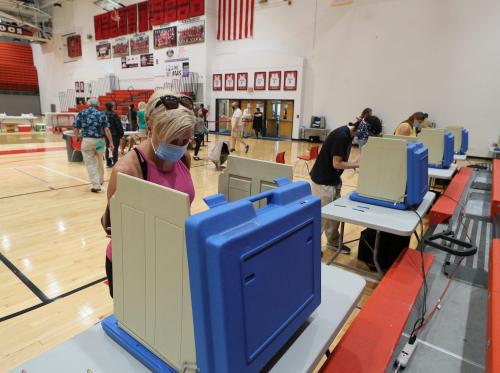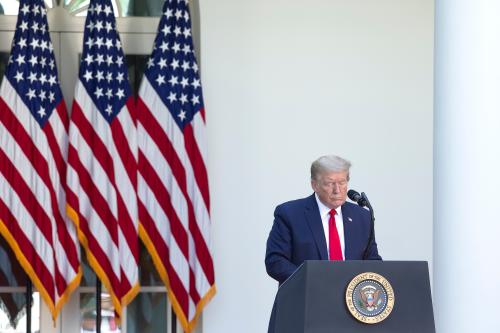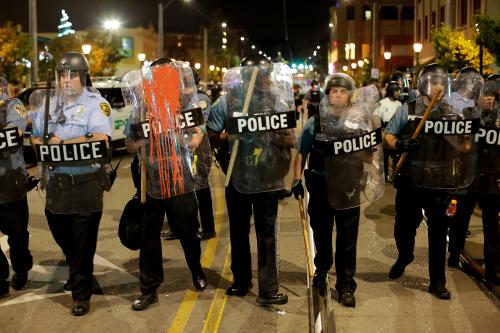The killing of George Floyd by Minneapolis police officers and the nationwide demonstrations it triggered have crystallized the public’s changing attitudes on race in America in surprising ways. Accustomed as we are to deep political polarization, a compilation of polling on these questions shows the emergence of important areas of consensus that could serve as the basis of policing reforms.
Here is some of what we have learned from opinion surveys conducted during the past few weeks.
The response to Mr. Floyd’s killing has been near-unanimous. Only 2% of Americans believe that the use of force against him was justified, while 81% consider it unjustified.
The impact of the Floyd killing on attitudes toward policing is much greater than in previous cases of the controversial use of force. After the 2014 killing of 12-year-old Tamir Rice in Cleveland, 33% of Americans said that police were more likely to use excessive force against Black suspects; 58% disagreed. Two years later, the fatal shooting of Philando Castile near St. Paul, Minnesota yielded similar results. But in the wake of George Floyd’s death, 57% of Americans had come to believe that the police were more prone to use excessive force against Black people.
Americans are more likely to approve of their local police force than of police in the country. 77% of Americans, including 52% of African Americans, express favorable attitudes toward police in their community. By contrast, 49% of Americans—and just 20% of African Americans—are favorable toward police throughout the United States.
Responses to police misconduct reflect broader attitudes on race relations. 76% of Americans now say that discrimination against racial and ethnic minorities in the United States is a “big problem,” including 57% of conservatives, 71% of whites, and 69% of whites without college degrees. In addition, Americans have turned more pessimistic about progress toward racial equality. In 2014, the 50th anniversary of the Civil Rights Act, 79% of Americans saw gains in the fight to end racial discrimination, compared to just 56% today.
Americans overwhelmingly regard peaceful protests as a justifiable response to the killing of Mr. Floyd, and they believe that the police are using too much force against these protests. At the same time, they reject violence and say that the police have not used enough force against it. But two-thirds of Americans blame “other people,” not the protesters themselves, for the outbreaks of violence.
Americans are more troubled about police misconduct than about protesters’ excesses. When asked, “Which concerns you more, the actions of the police against George Floyd or protests that have turned violent?” about 6 in 10 Americans, including 54% of whites, name the police actions as their greater concern.
Americans favor a wide range of reforms to policing practices, and nearly all enjoy majority support across party lines.
| All | Democrats | Independents | Republicans | |
| Require police to intervene against, stop, and report excessive use of force by other officers | 95 | 97 | 96 | 95 |
| Require police to give a verbal warning before shooting at a civilian | 89 | 95 | 90 | 83 |
| Require states to publicly release officers’ disciplinary records | 76 | 89 | 75 | 62 |
| Allow individuals to sue police officers for using excessive force | 73 | 85 | 74 | 55 |
| Ban chokeholds and strangleholds | 68 | 82 | 70 | 52 |
| Ban no-knock warrants | 52 | 65 | 56 | 34 |
(Source: Kaiser Family Foundation)
At the same time, Americans reject broader changes some advocates have urged and are divided on others. 54% reject cutting funding for police and transferring the funds to social service agencies, and 81% reject disbanding the current police force and starting over. Efforts to remove Confederate statues are backed by only a narrow majority of Americans—52%, with 44% opposed—and proposals to rename military bases produce a 47-47 split.
The bottom line: it’s not 1968 anymore. A large share of white Americans now endorse views on race relations once confined largely to African Americans. While Americans of all parties and races continue to oppose violent protests, appeals to “law and order” not balanced with the recognition of deep injustice lack the resonance of half a century ago. This helps explain why barely one-third of Americans support President Trump’s handling of race relations—and why 53% of Americans say that relations have gotten worse on his watch.







Commentary
When it comes to public opinion on race, it’s not 1968 anymore
June 22, 2020